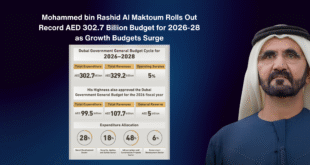I. Introduction
The Gulf digital finance rollout is gaining unprecedented momentum as the UAE and Bahrain accelerate innovation in digital currency, stablecoin regulation, and fintech infrastructure. This surge marks a pivotal transformation in the Gulf’s financial landscape. Today, we’ll explore how these initiatives are reshaping regional economies and what comes next.
II. Setting the Stage for a Digital Shift
The UAE and Bahrain have emerged as pioneers in the Gulf digital finance rollout, positioning themselves at the forefront of global fintech innovation. Starting mid-2024, the Central Bank of the UAE (CBUAE) introduced its Payment Token Services Regulation, enabling licensed dirham-backed stablecoins . Meanwhile, Bahrain implemented a robust virtual asset regulatory framework as early as 2019, reinforcing trust in its digital financial systems .
These regulatory shifts ensure a secure, transparent ecosystem for tokenized payments, catering to retail users and large financial institutions. As both countries embrace blockchain and DeFi, they’re laying the foundation for an inclusive digital economy.
III. Key Developments in 2025
1. UAE’s Digital Dirham & Stablecoin Revolution
The UAE is set to launch its digital dirham in Q4 2025. CBUAE governor Khaled Balama emphasized the rollout will combat financial crime, enhance monetary stability, and foster innovative business models . Alongside this, the UAE has approved dirham-backed stablecoins like AE Coin and Tether’s AED token, while DIFC regulators recognized USDC and EURC.
2. Institutional Investments & Infrastructure
Abu Dhabi’s MGX fund invested $2 billion in Binance via stablecoins—highlighting the UAE’s push to centralize digital finance and align with its growth strategy . Furthermore, Standard Chartered launched digital asset custody services in the UAE, signaling rising institutional adoption.
3. Bahrain’s Fintech Ecosystem
Bahrain’s Central Bank granted a Virtual Asset Service Provider (VASP) license to BitOasis’s CoinDCX division, reinforcing Bahrain’s leadership in regulated crypto infrastructure. Over 120 fintechs operate within its ecosystem, with initiatives spanning digital banking, mobile wallets, and blockchain telco partnerships.
IV. Regional Impact: Bahrain & UAE Driving Gulf-wide Change
UAE’s Nationwide Integration
Dubai’s Virtual Assets Regulatory Authority (VARA) and ADGM frameworks complement CBUAE policies, ensuring cohesive digital asset governance. Dubai is tokenizing $16 billion in real estate and enabling crypto payments for government services, underlining a multi-sector digital adoption strategy.
Bahrain’s Regulatory Edge
Positioning itself as the Gulf’s crypto regulatory pioneer, Bahrain offers comprehensive assurance through its robust supervision and sandbox environment. Collaboration between telecom giants and fintechs, such as Zain, Batelco, and STC Pay, is enhancing financial inclusion and cross-border remittance efficiency.
📌 Related Read:
🔗 Digital Dirham Retail Launch: UAE’s Bold Move Towards a Cashless Future
V. What’s Next in the Gulf Digital Finance Rollout
The Gulf digital finance rollout in the UAE and Bahrain marks a transformative moment in regional financial innovation. With CBDCs, stablecoins, and fintech infrastructure scaling rapidly, the Gulf is emerging as a global fintech powerhouse. Next up: cross-border digital payment interoperability, public-private DeFi ecosystems, and wider regional integration.
Stay tuned to The Credible Story for real-time updates on Gulf digital finance breakthroughs.
 The Credible Story Trending stories that keep you hooked
The Credible Story Trending stories that keep you hooked




